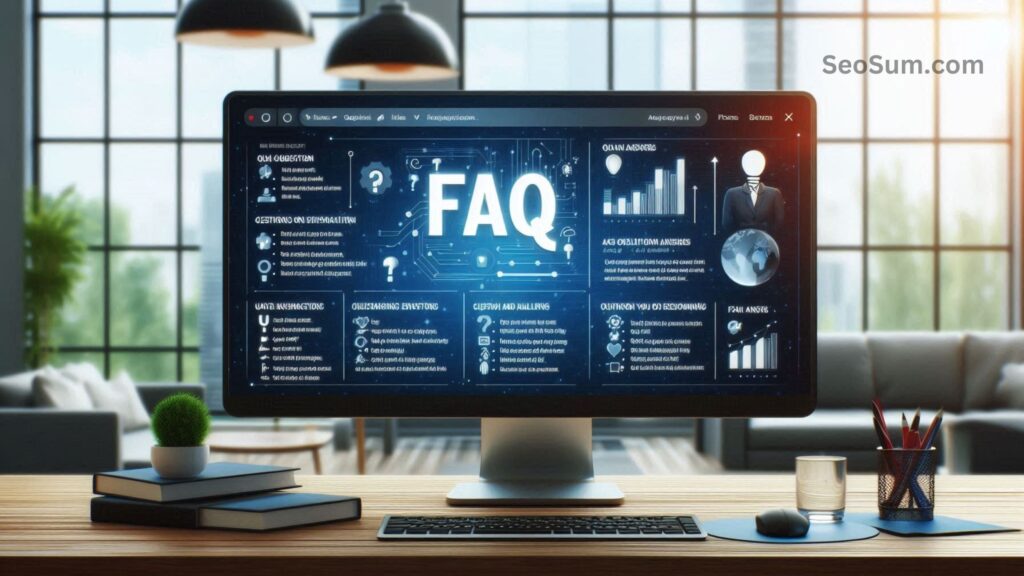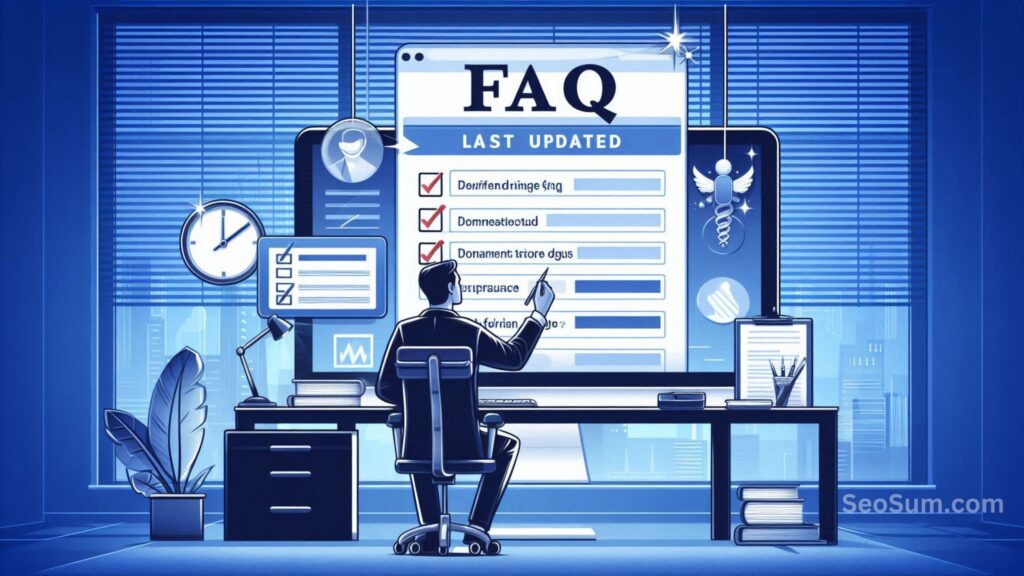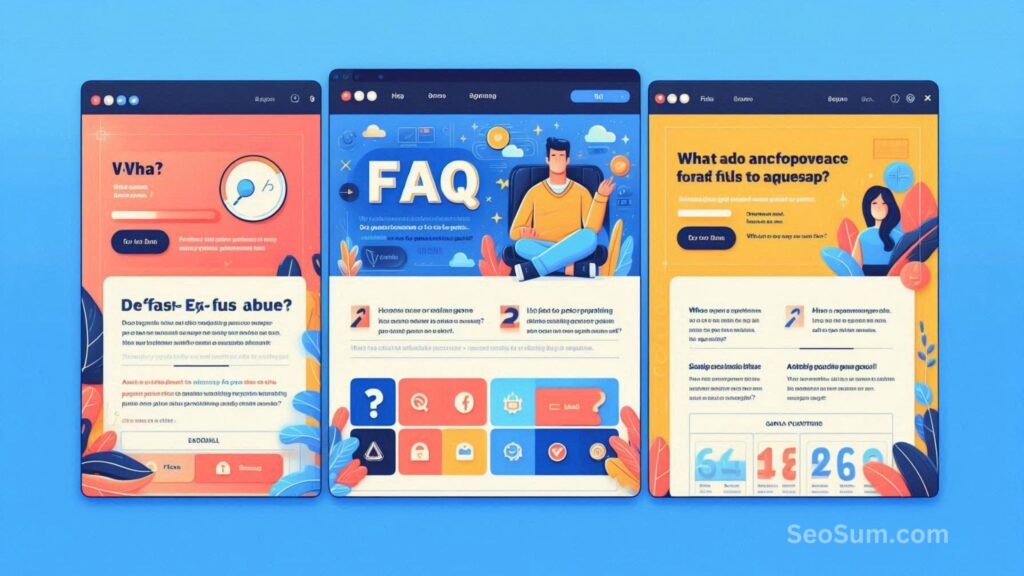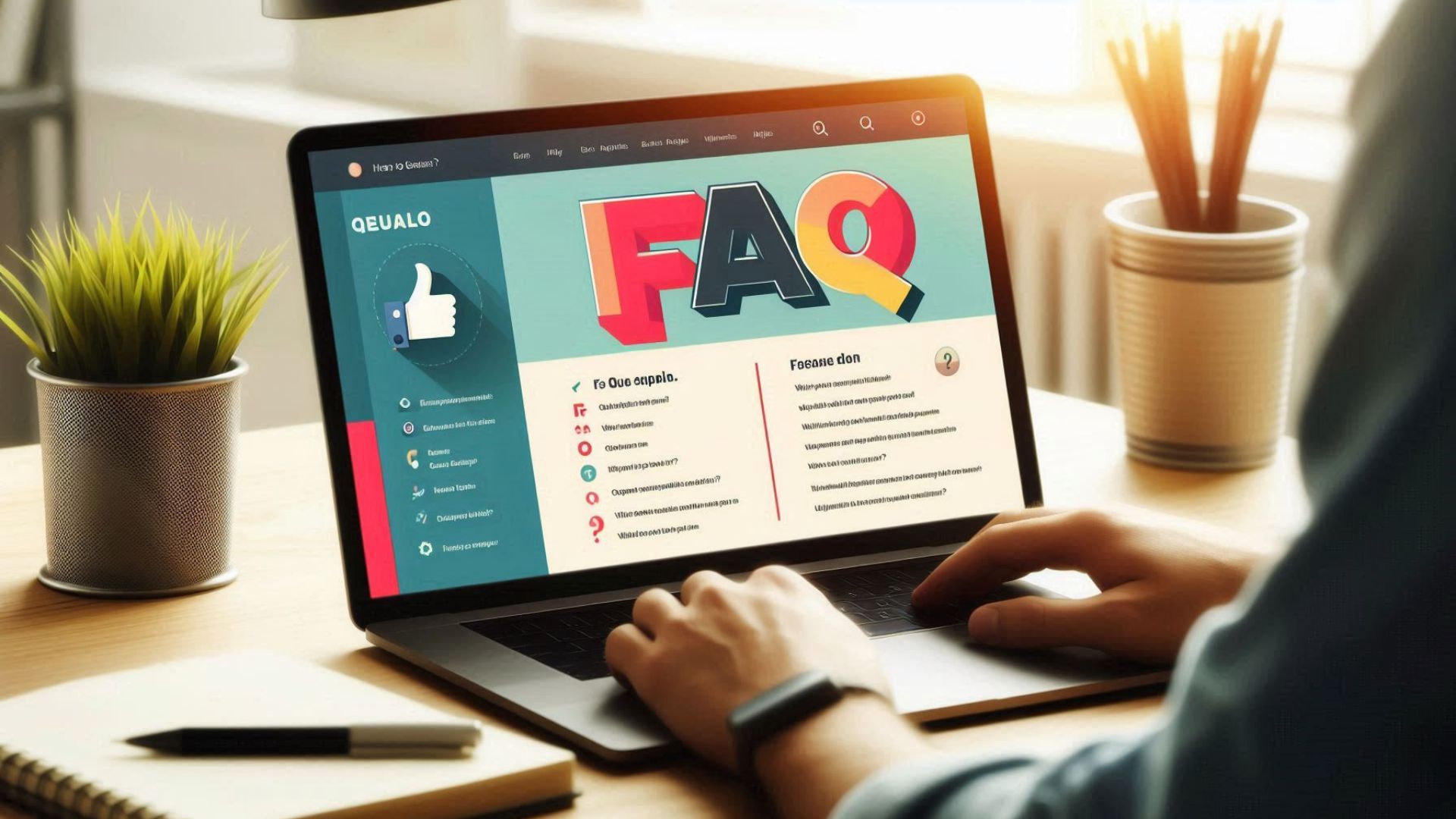Ever wonder why some websites always have the answers you need, right away? It’s usually because they have a well-organized FAQ page.
Yep, FAQ pages do more than just answer questions—they make your website easier to find. It’s like hitting two birds with one stone: you improve the user experience and boost your site’s SEO at the same time. Yet, many businesses overlook FAQ pages when planning their SEO strategy. Big mistake—because they can be a goldmine for search rankings.
Thinking about improving your FAQ section? Let’s talk about how you can turn it into an SEO powerhouse!
Why You Need an FAQ Page
Think of an FAQ page as a customer service assistant that works 24/7. It answers common questions before users even need to ask, making their experience smoother and keeping them on your site longer. Happy visitors are more likely to return—and even make a purchase.

But here’s the real kicker: FAQ pages can seriously boost your SEO. Adding structured data to your FAQs increases your chances of appearing as a Featured Snippet on Google. This means more people see your site first, giving you a big advantage over competitors.
Another bonus? Your customer support team won’t have to waste time answering the same basic questions over and over. They can focus on more complex issues, improving efficiency and even cutting down costs.
And let’s not forget voice search. Since FAQs are written in a natural, conversational way, they match how people ask questions on their smart devices. That means your site becomes more visible in voice search results!
Oh, and here’s a fun fact: 27% of people online use voice search on their phones to find answers to FAQs. Imagine tapping into that audience just by optimizing your FAQ page!
Also Read: What is the Difference: Informational vs Transactional?
Optimizing FAQs for SEO
Want to drive more traffic and improve visibility? Here’s the secret: use long-tail keywords that match what people are actually searching for.

Tools like AnswerThePublic and Google Keyword Planner can help you figure out what your target audience wants to know. Adding semantically related keywords also makes your content more relevant, which boosts your ranking without making it feel stuffed with keywords.
Linking your FAQ answers to other parts of your site strengthens your website structure and keeps visitors engaged longer. I also love embedding FAQs into blog posts—it helps add relevant keywords naturally and improves voice search compatibility.
Thinking of creating standalone FAQ blog posts that dive deeper into specific industry topics? Smart move. This not only attracts a dedicated readership but also increases the chances of earning organic backlinks.
Another trick? Formatting your FAQs in a way that Google can feature them in search results. Clear, concise answers improve your chances of landing a Featured Snippet, which means higher click-through rates!
Using Structured Data to Rank Higher
If you want your FAQ page to stand out in search results, structured data is the way to go. Google loves FAQ schema markup, especially in JSON-LD format—it helps search engines understand and display your FAQ content more effectively.

Here’s a simple example of how FAQ schema looks:
htmlCopyEdit<script type="application/ld+json">
{
"@context": "https://schema.org",
"@type": "FAQPage",
"mainEntity": {
"@type": "Question",
"name": "What is your return policy?",
"acceptedAnswer": {
"@type": "Answer",
"text": "Our return policy allows returns within 30 days of purchase, as long as the product is in its original condition."
}
}
}
</script>
Adding this to your FAQ page’s HTML can help you land rich results, meaning your FAQs might show up directly in search results—driving more traffic to your site.
Best practices for FAQ schema:
✔️ Ensure each question has a clear, direct answer
✔️ Avoid promotional language (Google doesn’t like it)
✔️ Don’t use FAQ schema for “How-To” content (use HowTo schema instead)
✔️ Keep the format consistent across your site
Properly structuring your FAQ data can boost your rankings and help you outrank competitors.
Also Read: How to Create Cost-Effective Content?
Reducing Bounce Rates with Engaging FAQ Content
A good FAQ page isn’t just about listing questions and answers—it should keep visitors engaged. Have you ever found an FAQ page that answered your question so well that you didn’t need to look anywhere else? That’s the goal!

Well-crafted FAQ content:
✅ Improves user experience by answering questions quickly
✅ Helps with voice search queries (which are growing fast!)
✅ Increases the chance of appearing in Featured Snippets
✅ Boosts conversion rates by building trust
Another major benefit? A strong FAQ section reduces pressure on your customer support team. When visitors can find answers easily, they won’t need to reach out as often—saving your team time and resources.
The Power of Internal Links in FAQs
FAQ pages aren’t just about answering questions—they also help with site structure and SEO. Have you thought about where to place internal links in your FAQs?

✅ Link to pillar pages – Connect FAQs to main product or service pages for better navigation
✅ Use descriptive anchor text – Helps users and search engines understand what the linked page is about
✅ Keep it natural – Links should flow naturally within the content
But be careful—too many links can overwhelm users. Aim for a balance that improves navigation without overloading the page.
Internal links also help spread link equity throughout your site, which can improve SEO rankings for multiple pages.
Keeping Your FAQ Page Fresh
Your business changes, and so do customer questions—so your FAQ page should always stay up to date.

Why update your FAQ content regularly?
✔️ Keeps information accurate and relevant
✔️ Boosts SEO with trending keywords
✔️ Shows customers you care about providing up-to-date answers
I recommend reviewing your FAQ section every 3-6 months or whenever major changes happen in your industry, products, or services.
What happens if you ignore your FAQ page?
❌ Customers lose trust in your site
❌ Search rankings drop due to outdated info
❌ More customer support inquiries (wasting time and resources)
So don’t let your FAQ section collect dust—keep it fresh and useful!
Real-Life Examples of Successful FAQ Pages
Still not convinced that an optimized FAQ page can make a difference? Let’s look at a case study:

🔹 iSocialWeb saw a 40% increase in organic traffic after implementing structured FAQ data
🔹 Neil Patel’s FAQ strategy helped improve click-through rates by over 20%
🔹 Shopify uses FAQs to rank for high-intent keywords, driving more conversions
These examples show that a well-optimized FAQ page can bring huge SEO and user experience benefits.
Also Read: How to Balance Keywords with Quality?
Final Thoughts
Your FAQ page isn’t just a list of answers—it’s a powerful SEO tool, a customer support assistant, and a way to boost engagement all in one.
Want to see real results?
✅ Optimize for long-tail keywords
✅ Use structured data to appear in search results
✅ Link FAQs to relevant pages for better site navigation
✅ Keep FAQs updated to stay relevant
By following these strategies, you’ll turn your FAQ page into a traffic-generating, conversion-boosting powerhouse. 🚀





